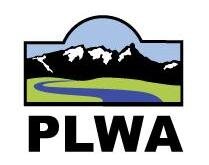I derailed the OP about the difficulty of public access to public waters by selfishly focusing too much on pigs whose actions have gotten long established access to one of my nearby streams closed off (
to me).
The core of the legal case in the OP was about... "the
issue of “navigability” — a federal government distinction that typically dictates the rules of public access by establishing whether a stream or river
has been used “for purposes of interstate or foreign commerce.”

www.federalregister.gov
That discussion is important to me.
Is floating on the water itself usually not legally restricted?
Is Washington law in line with Federal statutes and most other states?
...the state's waters belong to the public and thus cannot be owned by any specific person or group. Instead, the state ― via the Department of Ecology, which manages Washington's water supply ― parcels out access to water in the form of water rights.
Navigating water and property rights in the state of Washington
The real core of the OP about the right to step (or drop anchor) onto a streambed.
What qualifies as navigable waters?
33 CFR Part 329 -- Definition of Navigable Waters of the United States
Navigable waters of the United States are those waters that are subject to the ebb and flow of the tide and/or
are presently used, or have been used in the past, or may be susceptible for use to transport interstate or foreign commerce.
Does that include streams that were used to/by:
Settlers, Trappers, and Native Americans in canoes, log rafts, and other small shallow draft river "vessels" to travel to-from villages, rendezvous, and towns to trade pelts and other items for goods produced elsewhere?
Float timber to a sawmill?
(
What might be other commercial uses?)
And if the originator of the goods only travelled within a single state, if the goods were purchased by another entity and transported to destinations in another state or country, does that constitute
interstate or foreign commerce?
About Waters of the United States | US EPA
The 1972 amendments to the Clean Water Act
established federal jurisdiction over “navigable waters,” defined in the Act as the “waters of the United States” (CWA Section 502(7)).
I'm interested in this case,
especially if it goes beyond the CO jurisdiction and becomes precedent.
Some other published articles of I've bookmarked
The primary advocate for the preservation and protection of whitewater rivers throughout the United States and connects the interests of human-powered recreational river users with ecological and science-based data to achieve goals within our mission.

www.americanwhitewater.org

www.scstatehouse.gov

www.plwa.org
















